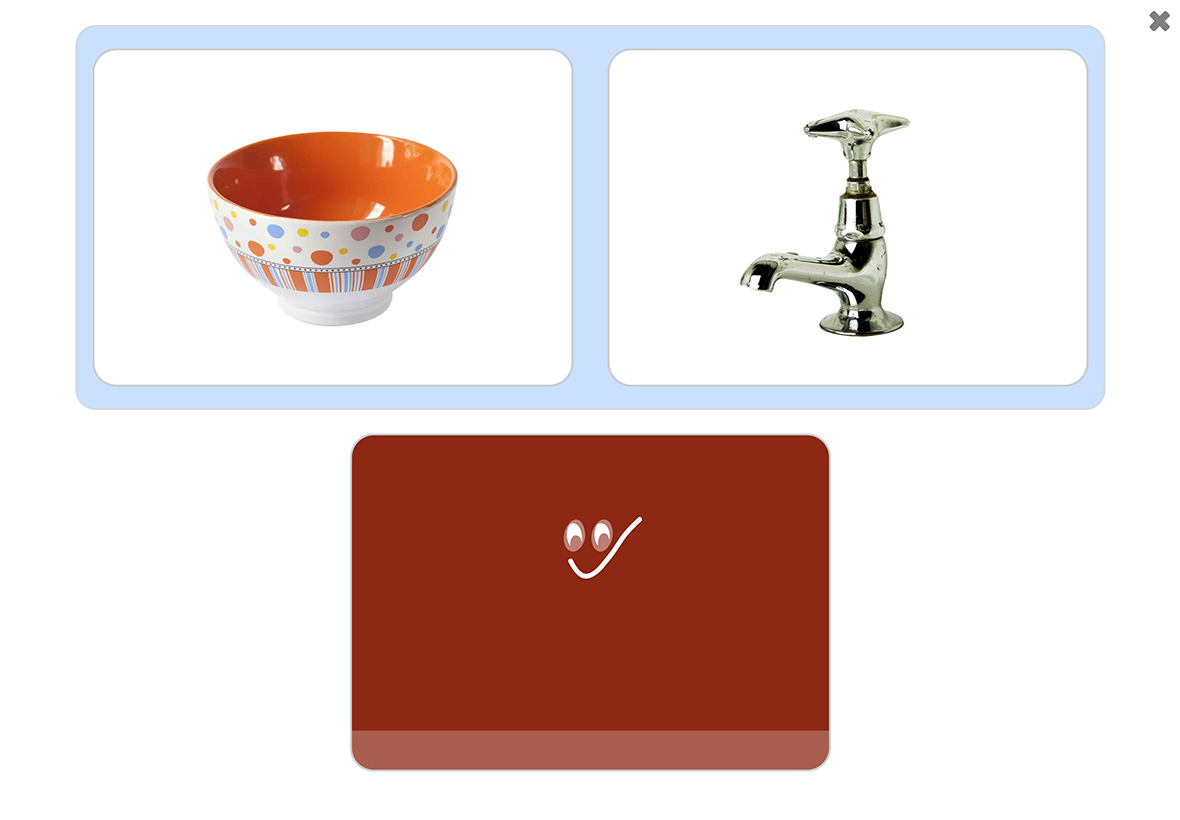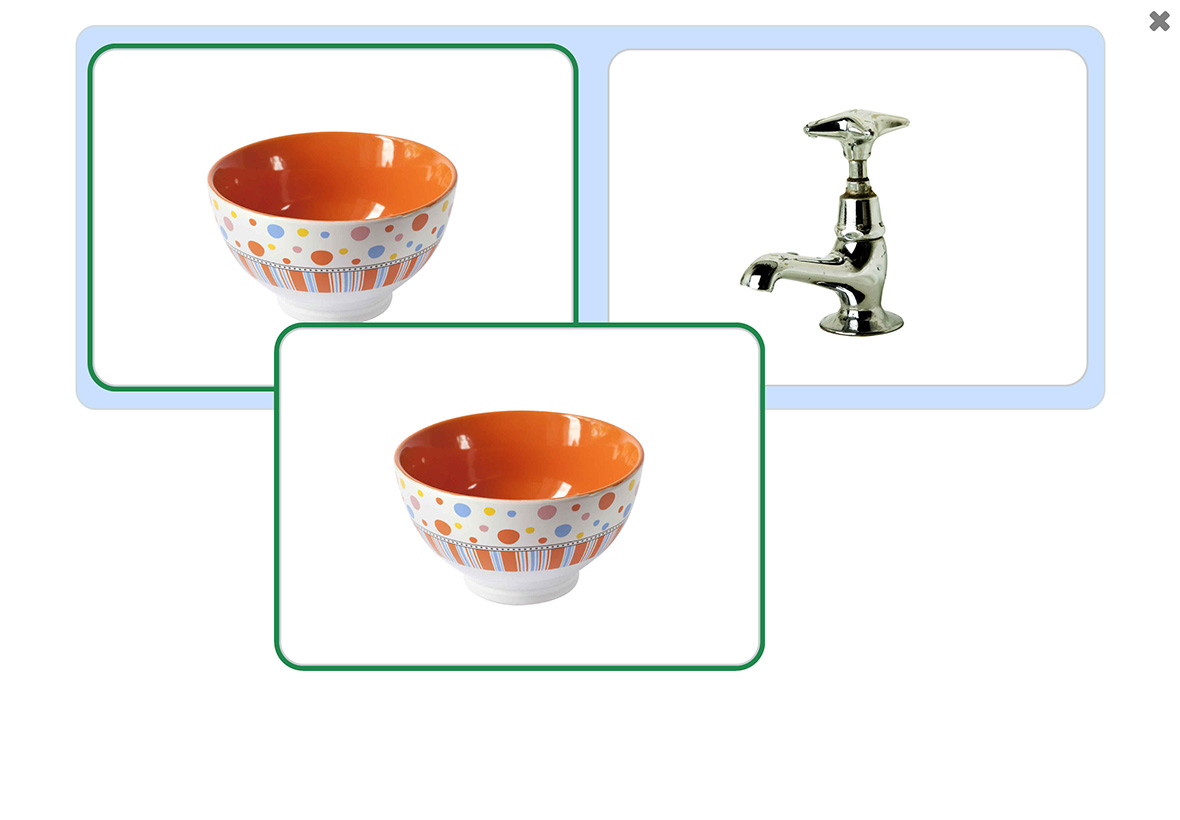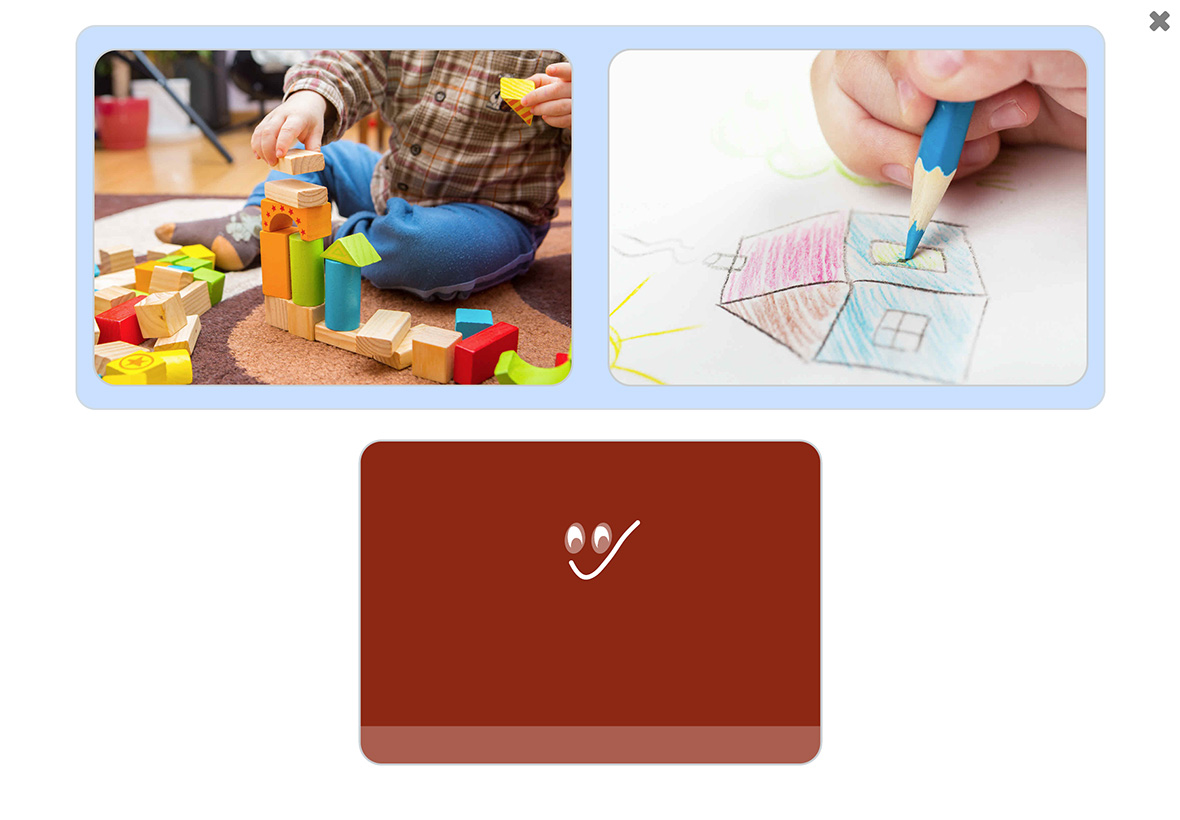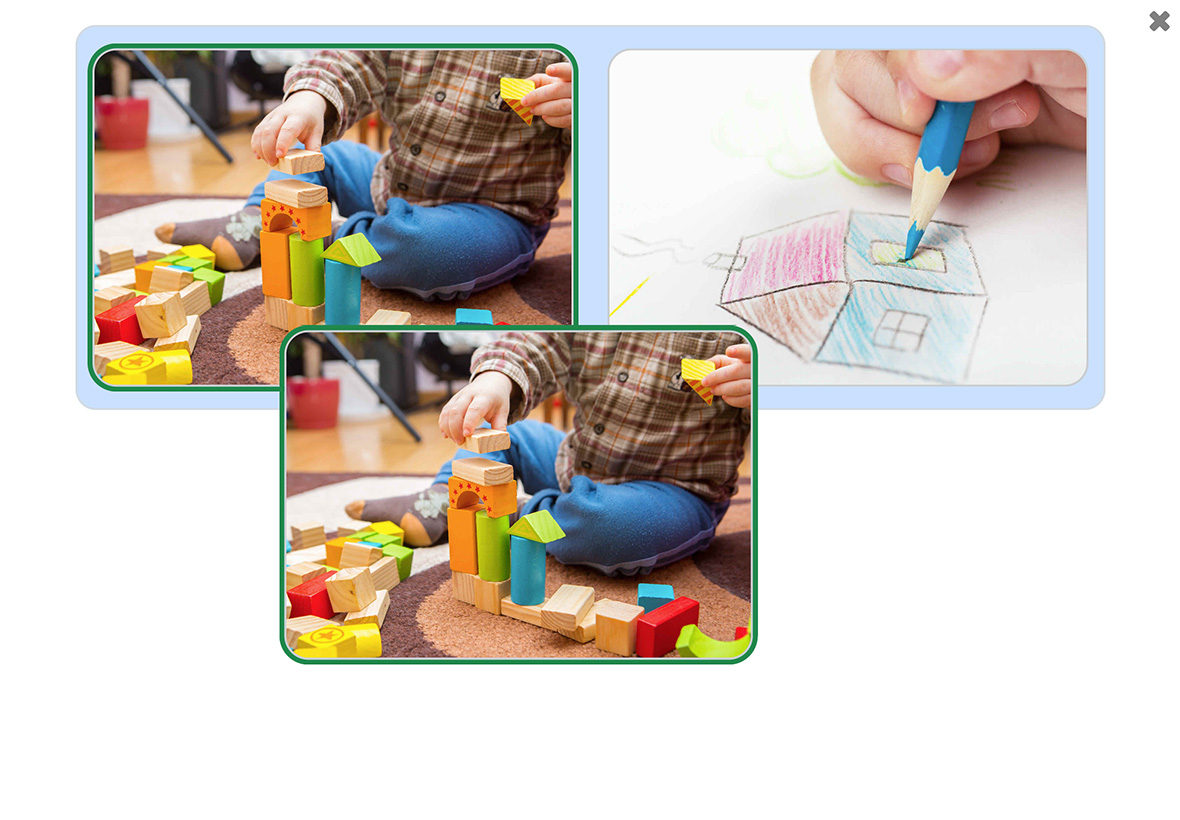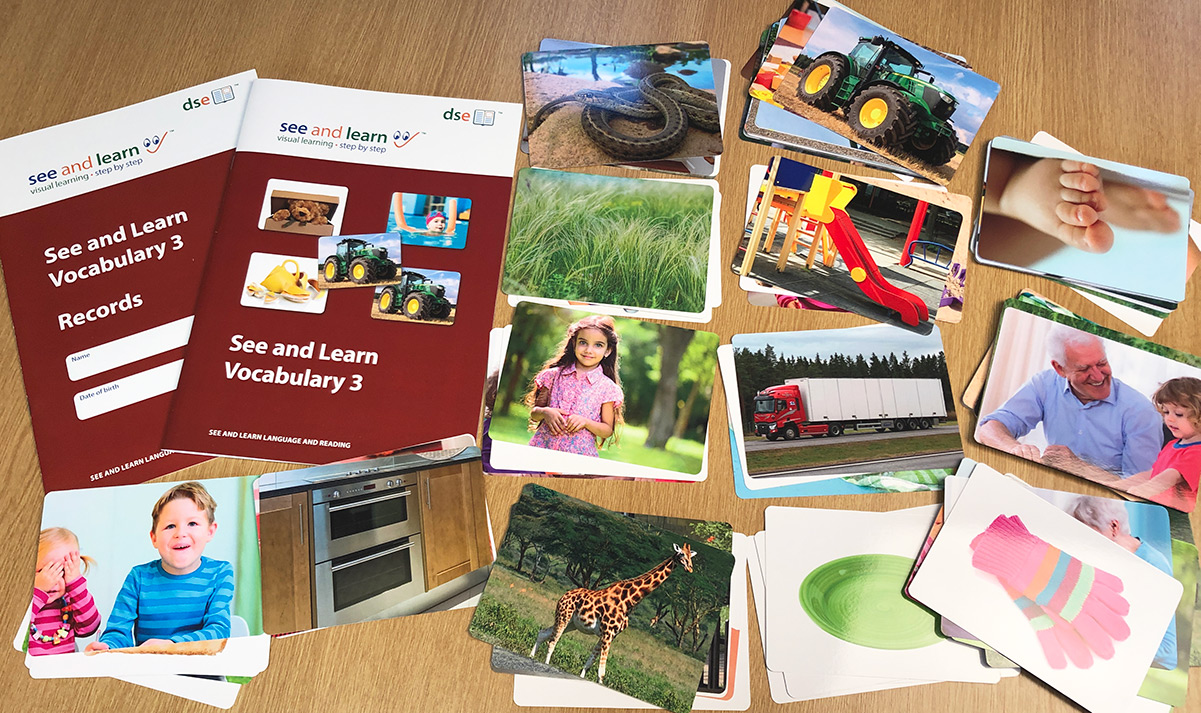Vocabulary 3
See and Learn Vocabulary 3 is the fifth step in See and Learn Language and Reading. It is designed to teach young children more new early words through picture matching, selecting and naming activities.
The activities are intended to supplement natural, everyday opportunities to learn language with the additional support that most children with Down syndrome, and children with similar additional learning difficulties, need to learn to communicate.
Learning goals
- Teach an understanding of 54 first words, including nouns, verbs and prepositions, selected from those children usually learn early in life
- Encourage children to listen to 54 first words and to link spoken words to pictures and instructions
- Encourage children to attempt to say 54 first words
- Teach children to spot differences between pictures
- Teach simple looking, matching, selecting and naming activities that can be used to learn new words and to test understanding
- Encourage young children to pay attention and engage in teaching activities for short periods of time
Features
- Designed to build on the children's relative strengths in visual processing and to minimise working memory demands
- Designed to advance in small steps and offer lots of opportunities for practise and consolidation
- Pre-selected vocabulary that is developmentally appropriate for children at this stage of language development
- 54 photographs providing natural and realistic representations of new vocabulary
- 3 teaching activities: Matching Pictures, Selecting Pictures and Naming Pictures
- Simple design to avoid distraction and focus attention on the learning tasks
- A detailed guide with step-by-step instructions
- Record forms to track your child's progress and plan the teaching activities
- Resources for teaching in any English dialect (optional spoken prompts are included in the app editions with UK and US accents)
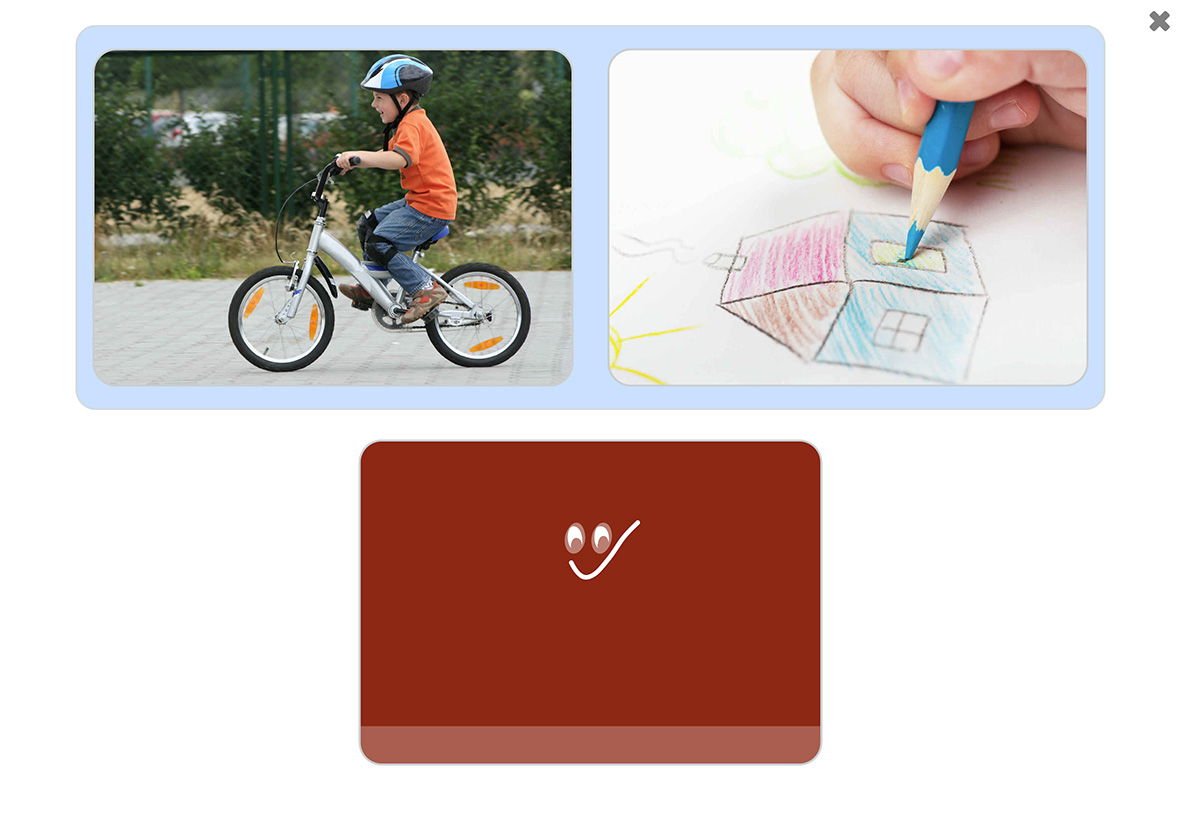
Vocabulary
arm, bear, bowl, boy, brother, stroller, cake, stove, door, egg, finger, fork, gate, giraffe, girl, gloves, grandma, grandpa, grass, ice-cream, lady, leg, truck, man, milk, underwear, pen, pizza, plate, potty, sand, scarf, sister, slide, snake, stairs, faucet, tiger, toast, toe, tractor, building, climbing, drawing, falling, feeding, riding, swimming, wiping, broken, clean, dry, in, on (pictured); is, like, my, say, there, turn, you, your (introduced in teaching activities)
arm, bear, bowl, boy, brother, pushchair, cake, cooker, door, egg, finger, fork, gate, giraffe, girl, gloves, grandma, grandpa, grass, ice-cream, lady, leg, lorry, man, milk, pants, pen, pizza, plate, potty, sand, scarf, sister, slide, snake, stairs, tap, tiger, toast, toe, tractor, building, climbing, drawing, falling, feeding, riding, swimming, wiping, broken, clean, dry, in, on (pictured); is, like, my, say, there, turn, you, your (introduced in teaching activities)
When to start
See and Learn Vocabulary 3 is designed for children who understand 80 to 120 words and say or sign 20 or more words.
Children who have completed See and Learn Vocabulary 1 and See and Learn Vocabulary 2 will be ready to start See and Learn Vocabulary 3.
Many children with Down syndrome will reach this stage by about 30 months, but rates of progress vary widely - some children will reach this stage earlier, some later.
See and Learn Progress Tracker
Our online progress tracker is coming soon.
Use it to monitor and support your child's development, with advice on activities and strategies to promote development, and guidance on which See and Learn steps may be able to help.
Next steps
Children who have learned the vocabulary in See and Learn Vocabulary 3 are ready to learn to put more words together and to read simple phrases using See and Learn Phrases 3. They are also ready to continue learning new vocabulary using See and Learn Sentences 1 .
See and Learn Language and Reading teaches the meaning of spoken words and encourages children to practise saying new words. It is designed to be used alongside See and Learn Speech which includes activities to encourage clearer speech.
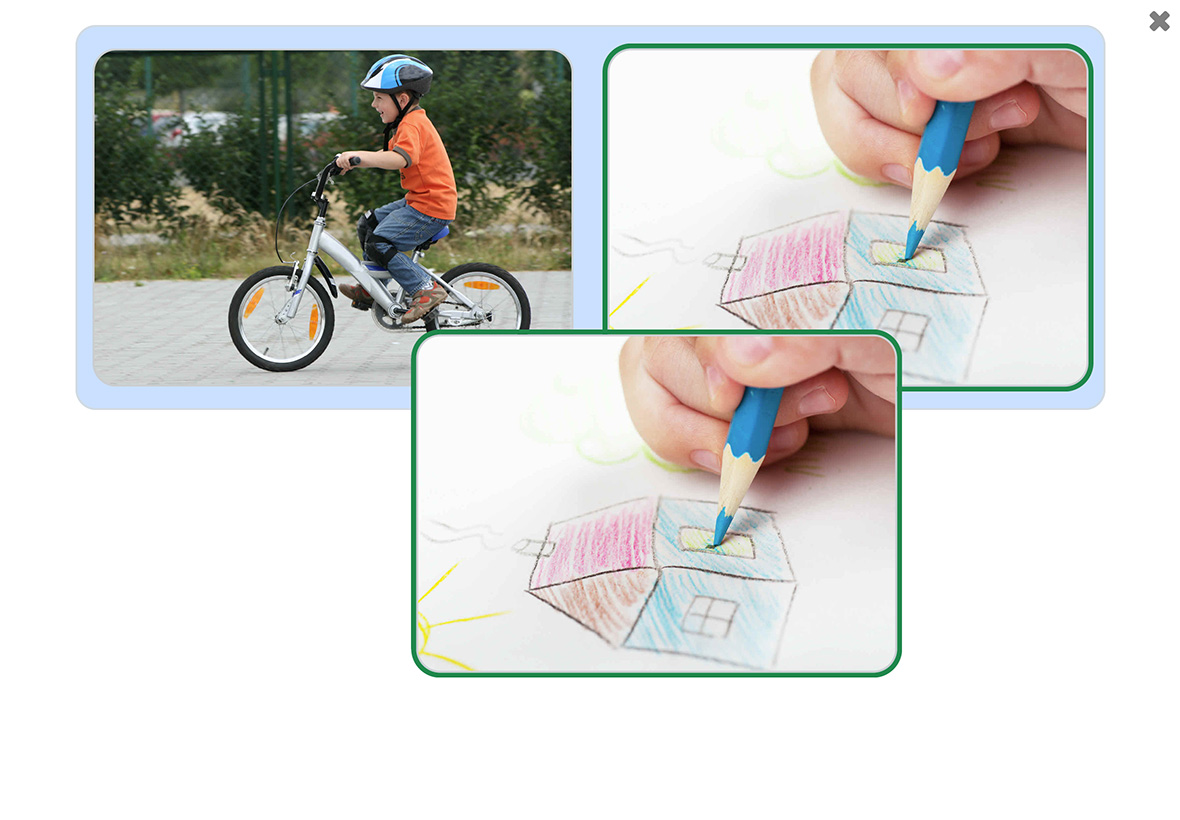
How to buy
See and Learn Vocabulary 3 is available as a printed kit or as an app for Apple iPads.
